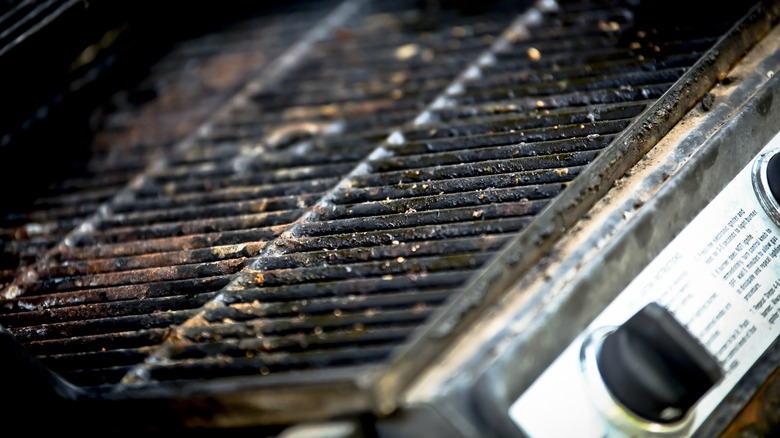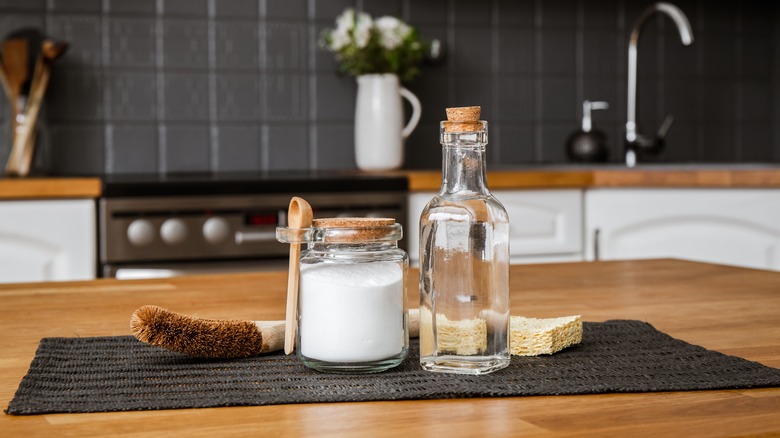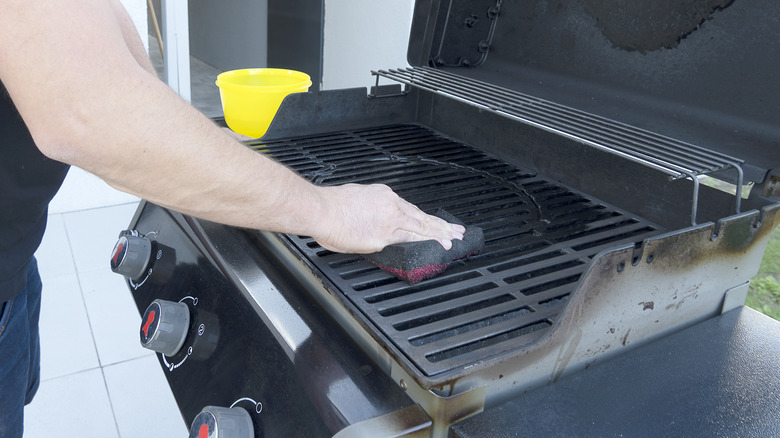The Best Method For Cleaning Your Rusty Grill
Come spring, there's nothing worse than popping out your grill grates for some delicious BBQ only to face some red-hot rust. Not only is rust extremely unhygienic, but it is also food unsafe. The good thing, however, is that rusty grills can be cleaned easily with a few household items. While many prefer using wire brushes to clean off the initial surface-level flaking, these tools may not be well-suited to all grill types, especially metal ones, due to the scope for abrasive damage. Moreover, the wire brush's bristles are prone to breakage, raising the risk of them making their way into the food.
So, it is best to follow more natural cleaning methods, such as using soapy water or baking soda to clean out rust. However, one cleaning solution that truly works like magic is the chemical-free vinegar-salt soaking method. It simply involves the overnight soaking of the rusted grates in a salt and vinegar paste, which is then wiped clean in the morning.
Clean rusty grills with a vinegar-salt mixture
Before you start cleaning your grates, wear proper safety gear, such as cleaning gloves, to protect against cuts and scratches, which can get irritated with the use of acidic vinegar solutions. Also, consider wrapping up electricals with plastic to prevent water exposure. To begin, you'll need a heavy-duty garbage bag, white vinegar, and salt. The aim is to mix vinegar and salt in a 2:1 ratio for every grill grate that needs cleaning. The salt will further aggravate the natural acidity of the vinegar, enabling the easy dissolvability of iron rust.
Follow it up by placing the rusted grill in the garbage bag and adding the vinegar-salt mix to it to keep it soaked through the night. Alternatively, the grill can also be soaked in a plastic tub or sink. By morning, the rust should have dissolved completely into the cleaning solution. For cases involving residual rust, normal table salt or aluminum foil can be used to wipe it further clean.
Prevention tips worth following
Cleaning up the rust once isn't going to cut it if you fall back to your former maintenance practices. Grill grates demand proper care, and it is far easier to prevent the grates from corroding than scrubbing them clean later. So, going forward, season your grills to improve their rust-resistance and non-stickiness levels. For instance, you can rub cooking oil-dipped towels on still-heated grills to season them and let them cool before cooking on them.
Other precautionary measures include cleaning the grill right after cooking while it is still hot with a scraper to avoid food build-up. Damp sponges or soapy water can be used to wipe grease off the grill trays. Always allow for proper drying to prevent contact with excessive moisture, which could lead to corrosion. Finally, consider covering your grill grates with a water-resistant, weather-proof cover, especially during the winter if the grill is placed in outdoor storage.


